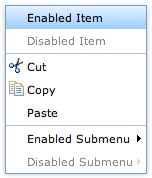Detect if a Document Has Loaded with JavaScript
If you follow me on Twitter, you've probably noticed me whining about ChromeDriver. For some reason it seems as though tests run before the document has properly loaded, leading to transient test failures and loads of frustration.
I thought the best way to avoid these problems was to ensure the document had loaded before each test run -- that way there's no excuse for transient loading problems. Here's the snippet I use to check if the page is ready:
// The basic check
if(document.readyState === 'complete') {
// good to go!
}
// Polling for the sake of my intern tests
var interval = setInterval(function() {
if(document.readyState === 'complete') {
clearInterval(interval);
done();
}
}, 100);
I found it ironic that for years we went looking for the ultimate "domready" script and here I am in 2015 trying to figure out if the document has completed loading. This is why we drink.
![Camera and Video Control with HTML5]()
Client-side APIs on mobile and desktop devices are quickly providing the same APIs. Of course our mobile devices got access to some of these APIs first, but those APIs are slowly making their way to the desktop. One of those APIs is the getUserMedia API...
![5 Awesome New Mozilla Technologies You’ve Never Heard Of]()
My trip to Mozilla Summit 2013 was incredible. I've spent so much time focusing on my project that I had lost sight of all of the great work Mozillians were putting out. MozSummit provided the perfect reminder of how brilliant my colleagues are and how much...
![Retrieve Google Analytics Visits and PageViews with PHP]()
Google Analytics is an outstanding website analytics tool that gives you way more information about your website than you probably need. Better to get more than you want than not enough, right? Anyways I check my website statistics more often than I should and...
![Create a Context Menu with Dojo and Dijit]()
Context menus, used in the right type of web application, can be invaluable. They provide shortcut methods to different functionality within the application and, with just a right click, they are readily available. Dojo's Dijit frameworks provides an easy way to create stylish, flexible context...





Between
DOMContentLoaded/loadanddocument.readyState, I think that there are a few ensure that something is executed once the document is loaded.HTMLDocument.prototype.ready = function () { return new Promise(function(resolve, reject) { if (document.readyState === 'complete') { resolve(document); } else { document.addEventListener('DOMContentLoaded', function() { resolve(document); }); } }); } document.ready().then(...);Nice, Chris!
Thanks. I think you may have posted something very similar to this before. Or am I just imagining that?
window.onload = function () { alert("keep it oldschool!") };I must be missing something obvious … why not just use jQuery?
You don’t use jQuery for a tiny code snippet…
Re use is cultural fenomenon Unless this is some kind of deep JavaScript master class? Which I think it is not.
We have solved and debated this issue in 2008 last time.
As I like to reuse what is shareable, I might point to this (instead of re writing it all over again).
No it was 2006 sorry … Very interesing page to read now.
I suggest read it all, including comments, than come back here.
Personally, I will prefer js and only include jQuery if there is a strong need and justification for that. But that’s me, you might prefer to use jQuery, but i don’t think there is a need to get pissed for using js instead of jquery
Alternately, I think you could use the
ReadyStateChangeEvent.document.addEventListener('readystatechange', function docStateChange(e) { if(e.target.readystate === 'complete') { e.target.removeEventListener('readystatechange', docStateChange); done(); } });A few people mentioning using an event listener. The problem is that I don’t know if the page is done loading; i.e. I can’t count on an event listener. Polling is the best way if I don’t know when my script is being injected.
Could you clarify this a litte? Using polling here seems a bit crude in comparison to replacing it with listening for a
readystatechangeevent.If my test is triggered after the page is ready (remember, I can’t count on when it starts), readystatechange will have already triggered and my signal will never be triggered.
But wouldn’t that be covered by your basic test already? So…only bind a listener in case the
readyStateisn’tcompleteyet?Maybe a combination of the two would suit
if(document.readyState !== 'complete'){ // use Kevin's addEventListener('readystatechange', .... }This is the version that I am using at the moment, I don’t know if it applies to your test though..
// This is needed to prevent onreadystatechange being run twice var ready = false; document.onreadystatechange = function() { if (ready) { return; } // interactive = DOMContentLoaded & complete = window.load if (document.readyState == 'interactive' || document.readyState == 'complete') { ready = true; // init you code here } };How can i use this for a preloader?
jQuery code is:
$(window).load(function(){$('#preloader').fadeOut();});but i will use it without jQuery…
thanks! worked perfectly for my case where no events seem to work as well. just wanted a script for console or bookmark which would keep scrolling down on infinite scrollers. it surely still can be improved, but this was good enough for me for now:
window.scrollTo(0,document.body.scrollHeight) if (interval) { clearInterval(interval) interval = null } else var interval = setInterval(function() { console.log(document.readyState) if(document.readyState === 'complete') { window.scrollTo(0,document.body.scrollHeight) /* setTimeout(function() { if(document.readyState === 'complete') clearInterval(interval) }, 100)*/ } }, 200)if (document.readyState === 'complete')Yep, that worked for me. Tough to find because there’s way more out there on the event ‘ready’ as opposed to the state ‘ready’.